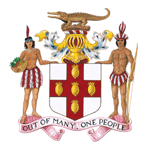Doing Business in Jamaica
Trade Overview
Trade has always played a major role in the Jamaican economy, with the value of exports and imports totalling over 50 percent of GDP. Exports are broken down into two categories: traditional and non-traditional. Traditional exports are in the areas of agriculture, mining and manufacturing and include: bananas, citrus, coffee, cocoa and pimento; bauxite, alumina and gypsum; as well as sugar, rum and products made from citrus, coffee and cocoa.
Non-traditional exports include food products such as cucumbers, pumpkins, dasheens, sweet potatoes, yams, mangoes, papayas, ackee, and fish. Other important non-traditional exports are beverages and tobacco, cut flowers, limestone, chemicals, apparel, furniture and light manufactured goods.
Jamaica’s main export partners are the USA, Canada, UK, Norway, countries of the Caribbean Community (CARICOM), Japan and countries of the European Union (EU).
Jamaica’s main imports are food and other consumer goods, industrial supplies, fuel, parts and accessories of capital goods, machinery and transport equipment and construction materials. The main import partners are the USA, CARICOM, Germany, Venezuela, France and Japan.
Jamaica is one of the world’s leading exporters of bauxite and alumina. Jamaica is also considered as the home of the world’s finest rums, coffee and pimento. However, there is usually a balance of trade deficit equivalent to about 20% of GDP.
Jamaica-Japan Trade Relations
Japan is an important trading partner for Jamaica, but the balance of trade is heavily in Japan’s favour. For the fiscal year ending in March 2006, Jamaica’s exports to Japan were valued at US$19.8 million, while Japan’s exports to Jamaica were valued at US$127 million, approximately. The value of Jamaica’s exports to Japan in 2005 declined due to the damage caused to the Jamaican coffee industry as a result of Hurricane Ivan in late 2004.
Exports from Japan to Jamaica
The main items exported from Japan to Jamaica are new and used motor vehicles, electronic and domestic appliances, machinery and heavy equipment, photocopiers and iron and steel. Around ninety percent of Jamaican motor vehicles are imported from Japan.
Exports from Jamaica to Japan
The main exports from Jamaica to Japan are coffee, cocoa, alcoholic beverages, records and compact discs, and sauces and spices. Over 80 per cent of Jamaica’s Blue Mountain Coffee is exported to Japan. Jamaican rum is also highly regarded in Japan for its fine quality, while Jamaican Jerk Seasoning is growing in popularity and is now available in supermarkets in Tokyo and other cities. Compact Discs featuring Jamaican reggae and dancehall artistes are readily available in music stores throughout Japan.
Please click here for a list of Japanese Distributors of Jamaican products.
Blue Mountain Coffee
Jamaica has been exporting high quality coffee since 1737.
Blue Mountain is a geographic expression confined to a specific area in Jamaica. The coffee grown in this area has become world famous for its distinctive aroma, noticeable sweetness and clean brew. The high quality of Blue Mountain Coffee is mainly attributed to the particular ecological features of the Blue Mountains, particularly the soil type, the rainfall regime, the cloud cover and the misty mountain air which keeps the plants damp and cool. Jamaican farmers also employ special methods of germinating, growing and harvesting coffee to produce a high-yield crop with optimum acidity.
Jamaican coffee comes from the Arabica Typica variety which yields beans which are more delicate and flavourful than the Robusta beans produced in other countries. It also has two-thirds less caffeine than standard coffee.
Jamaica Promotions Corporation (JAMPRO) - http://www.jamaicatradeandinvest.org
Trade Board Ltd. - http://www.tradeboard.gov.jm
Planning Institute of Jamaica - https://www.pioj.gov.jm
Bank of Jamaica - http://www.boj.org.jm/
Caribbean Community (CARICOM) - https://www.caricom.org
Jamaica Manufacturers & Exporters Association - http://www.jmea.org
Investment Overview
Foreign and domestic investments have become the main drivers of the Jamaican economy. There are now a wealth of investment opportunities covering tourism, mining, energy, information and communications technology (ICT), manufacturing, infrastructure and educational services.
Jamaica offers several advantages as an investment destination, including:
- A strategic geographic location in the centre of the Caribbean;
- A state-of-the-art telecommunications infrastructure;
- A world-class port facility in the Port of Kingston;
- Two conveniently located international airports;
- An affordable, trainable and highly adaptable English-speaking workforce;
- A modern and efficient financial services sector, underpinned by a strong legislative and regulatory framework;
- Attractive investment incentives and access to free zones.
Jamaica’s investment portfolio in 2006 is valued at around US$3.5 billion, placing the country as the leading investment destination in the Caribbean and with a 17th place ranking as a destination for foreign investment, according to the World Investment Report.
Jamaica Promotions Corporation (JAMPRO) - http://www.jamaicatradeandinvest.org
Planning Institute of Jamaica - https://www.pioj.gov.jm
Bank of Jamaica - http://www.boj.org.jm/
Caribbean Community (CARICOM) - https://www.caricom.org/
Port of Kingston
The Port of Kingston is located on the world's seventh largest natural Harbour. The port is strategically located on the north/south-east/west axis through the Caribbean, approximately 32 miles from the trade routes passing through the Panama Canal.
In 2005, the Port of Kingston moved up eight places to attain a ranking of 56 among the World’s Top 100 Container Ports, while retaining its position as the leading transhipment port in the Latin American and Caribbean region.
In 2005, the Fourth Phase of the expansion project at the Kingston Container Terminal was completed at a cost of approximately US$70 million, bringing the capacity of the terminal to 1.5 million TEUs.
The Fifth Phase of the terminal expansion programme began in December 2005 and will increase the capacity of the terminal to 3.2 million TEUs by 2008, at a cost of US$200 million. After 2008, the following phase of expansion will involve the Fort Augusta development and a further increase in its capacity to 5 million TEUs. At this point, the Port of Kingston will achieve the status of a World Mega-Transhipment Hub with a ranking among the top 20 Container Ports in the world.
Port Authority of Jamaica - http://www.portjam.com
Free Zone
The Kingston Free Zone and the Montego Bay Free Zone provide significant investment opportunities for both Jamaican and foreign investors, including:
- Easy access to air, sea and telecommunications services
- No tax on profits
- Duty exemption on imports and exports
- Minimal customs procedures
- Wide market access through international trade agreements
- Adaptable, productive, English speaking workforce
Free Zone development in Jamaica involves the construction, management and rental of office and factory space in order to promote exports, generate foreign currency earnings, create new employment and facilitate the transfer of technology.
Companies in the Kingston and Montego Bay Free Zones are engaged in manufacturing activities, telemarketing, data entry, electronic assembly, telecommunication services and reservation and business process outsourcing.
The Kingston Free Zone opened in 1976 to complement the transshipment facilities of the Port of Kingston. It manages over 700,000 sq. ft. of factory space, in addition to the 50,000 sq. ft. at the Portmore Information Park.
Following the success of the Kingston Free Zone, the Montego Bay Free Zone was opened in 1985 and now comprises 600,000 sq. ft. of rentable space.
Jamaica’s Free Zones are among the most attractive and sought after locations for offshore operations in the Caribbean region and have been particularly successful in the development of the information and communications technology sector.
Kingston Free Zone - http://www.kingstonfreezone.com
Montego Bay Fee Zone - http://mbfz-jamaica.com
Links
Port Authority of Jamaica - http://www.portjam.com
Kingston Free zone - http://www.kingstonfreezone.com
Montego Bay Free zone - http://mbfz-jamaica.com
Jamaica Promotions Corporation (JAMPRO) - http://www.jamaicatradeandinvest.org
Jamaica Manufacturers & Exporters Association - http://www.jmea.org
Trade Board Ltd. - http://www.tradeboard.gov.jm/
Planning Institute of Jamaica - https://www.pioj.gov.jm
Bank of Jamaica - http://www.boj.org.jm/
Caribbean Community (CARICOM) - https://www.caricom.org/

